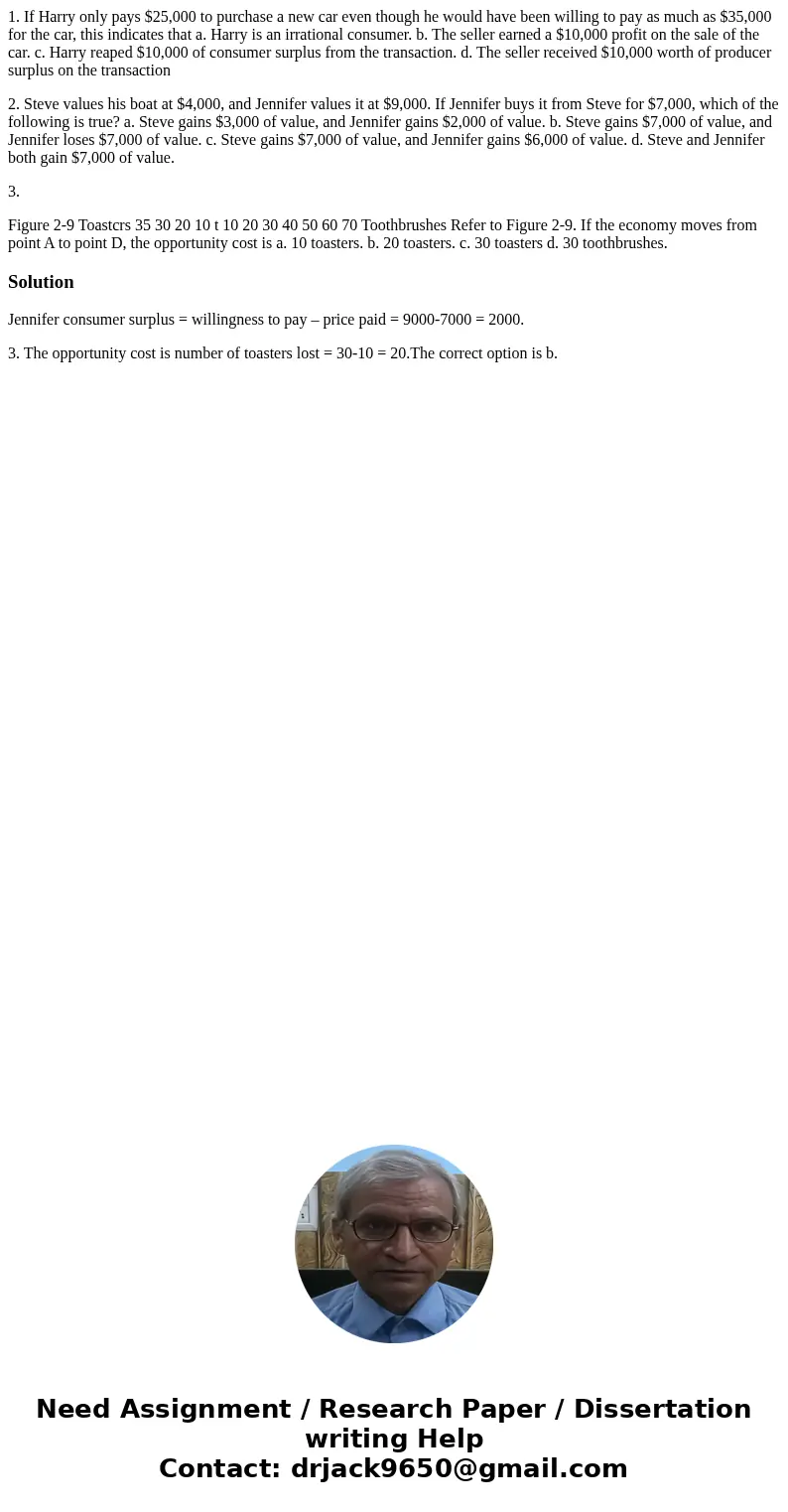1 If Harry only pays 25000 to purchase a new car even though
1. If Harry only pays $25,000 to purchase a new car even though he would have been willing to pay as much as $35,000 for the car, this indicates that a. Harry is an irrational consumer. b. The seller earned a $10,000 profit on the sale of the car. c. Harry reaped $10,000 of consumer surplus from the transaction. d. The seller received $10,000 worth of producer surplus on the transaction
2. Steve values his boat at $4,000, and Jennifer values it at $9,000. If Jennifer buys it from Steve for $7,000, which of the following is true? a. Steve gains $3,000 of value, and Jennifer gains $2,000 of value. b. Steve gains $7,000 of value, and Jennifer loses $7,000 of value. c. Steve gains $7,000 of value, and Jennifer gains $6,000 of value. d. Steve and Jennifer both gain $7,000 of value.
3.
Figure 2-9 Toastcrs 35 30 20 10 t 10 20 30 40 50 60 70 Toothbrushes Refer to Figure 2-9. If the economy moves from point A to point D, the opportunity cost is a. 10 toasters. b. 20 toasters. c. 30 toasters d. 30 toothbrushes.Solution
Jennifer consumer surplus = willingness to pay – price paid = 9000-7000 = 2000.
3. The opportunity cost is number of toasters lost = 30-10 = 20.The correct option is b.

 Homework Sourse
Homework Sourse